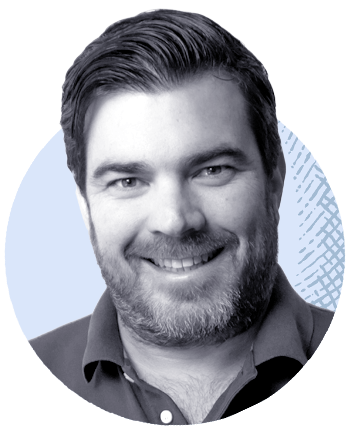Can I Use My 401(k) To Buy a House?
Saving enough money for a down payment on a house is one of the biggest obstacles prospective homeowners must face. The Federal Housing Administration (FHA) requires a down payment of at least 3.5%, and many lenders insist on a 5% minimum. Placing less than 20% down requires private mortgage insurance (PMI), which will increase your monthly payments.
According to the Federal Reserve Bank of St. Louis, the average price of a home in the U.S. in the 3rd quarter of 2023 was $431,000. Considering this, if you are a home buyer you may be looking for a little extra help to meet the down payment requirements. One option is tapping into your 401(k).
Withdrawing from your 401(k) to purchase a home is possible, but using your retirement funds to become a homebuyer carries some risk. You should consider a few essential details before making a 401(k) withdrawal to cover a down payment or closing costs.
Continue reading to learn how to use your 401(k) to buy a house.
How to buy a home using a 401(k)
If you decide to buy a house with your 401(k), you have two options: take out a loan or withdraw from your retirement funds prematurely.
Take out a 401(k) loan
Instead of taking money out of your retirement plan, you should first consider applying for a 401(k) loan for a home purchase. With this option, you won’t have to pay income tax on the amount borrowed, as long as you pay the loan back on time. What’s more, you won’t have to pay the 10% penalty charged for the early distribution.
Unlike a traditional loan, where you borrow money from a creditor, a 401(k) loan borrows money directly from your retirement savings account. Depending on the type of 401(k) plan your employer provides, you can take a loan for up to 50% of your vested savings or a maximum of $50,000 over one year.
The term for a 401(k) loan for home purchase is usually five years. You will also have to pay interest just as with any other loan. The interest rate for 401(k) home loans is typically one or two points above the prime rate, which sits at 8.50% as of January 2024.
Because there is no underwriting, approval for a 401(k) loan does not depend on your credit score, making this a tempting option for those with average or poor credit. A 401(k) loan won’t impact your debt-to-income ratio as well, since the money comes from your retirement savings account. Finally, a 401(k) loan won’t impact your credit score, which could help you qualify for mortgage loans with lower rates.
Not every 401(k) plan offers a loan option. Check with your plan administrator to determine whether you can take out a loan against your retirement savings account.
Make a withdrawal
The less desirable of the two ways to use your 401(k) for a down payment on a home is to withdraw the funds from the account directly. Unlike a loan, this option will likely come with a 10% penalty, and the money withdrawn is taxable income.
The IRS usually considers taking out money early for any reason a hardship withdrawal, which can only be used to pay for an immediate and heavy financial burden. Examples of the type of expenses that qualify include:
- Medical bills
- Tuition payments
- Funeral expenses
- Costs associated with purchasing a primary residence, such as the down payment and closing costs
Determining whether borrowing from your 401(k) qualifies for a hardship withdrawal is up to your employer, not the IRS. You will need to provide proof of your current financial situation and inability to buy a home without the money from your 401(k).
But can you use your 401(k) to buy a house penalty-free? Generally, the answer is no. But the IRS does grant exemptions for certain other situations.
Additionally, qualifying for an exemption only removes the early withdrawal penalty, there are still tax implications. You will have to pay on the amount withdrawn. Some 401(k) plans do allow for non-hardship withdrawals, but plans vary, and you will need to check with your employer to determine what your plan allows.
The benefits and drawbacks of buying a house with a 401(k)
If you’re wondering if you should use a 401(k) loan or withdrawal to buy a house, first consider these benefits and drawbacks.
The benefits
Tapping into your 401(k) account can provide the financial flexibility needed to buy the home of your dreams. If forced to pick between owning and not owning a home, you may find the decision to borrow from your retirement savings an easy one.
Advantages of a 401(k) loan:
- Avoid paying penalties and taxes. Borrowing against your 401(k) account keeps you from paying early withdrawal penalties, and the money is tax-free if the loan is paid back on time.
- Better for your credit. 401(k) loans are not listed as an existing debt on your credit report.
- Potentially lower mortgage rate. Avoiding credit checks leaves your credit score in the best possible position when applying for a mortgage. The higher your credit score, the better rate you can secure from the best mortgage lender.
- Default doesn’t affect credit score. Defaulting on a 401(k) loan won’t ruin your credit score, as failing to repay the loan won’t be reported to the three major credit bureaus.
Advantages of an early withdrawal:
- Nothing to repay. Taking out a hardship withdrawal leaves you with cash and no additional debt. If paying back a 401(k) loan and a mortgage doesn’t fit within your budget, this option can provide financial flexibility.
- Your credit score doesn’t matter. Individuals with average or low credit scores may find it difficult to secure money for a down payment. An early withdrawal from your 401(k) plan doesn’t depend on your credit score, making it an option for those trying to rebuild their credit.
The drawbacks
A 401(k) loan or withdrawal for first-time home buyers is only sometimes the best option. Other opportunities to secure funding for a down payment carry less risk and may cost you less overall.
Downsides of a 401(k) loan:
- Not always available. Not every 401(k) plan offers the ability to take out a loan. Check with your employer before making plans to borrow from your retirement account.
- Old plans are ineligible for loans. You cannot take out a loan against an old 401(k) plan from a previous employer unless you’ve already rolled that money into the plan offered by your current employer.
- The repayment window shortens after leaving your job. Leaving your current employer shortens your repayment window, regardless of whether you leave voluntarily or are let go. You must repay the loan in full before the next time you have to file taxes, or else risk defaulting.
- Defaulting costs money. Although defaulting on your 401(k) loan won’t affect your credit, it can cost money. Failure to repay on time will cause the IRS to reconsider the loan as a hardship withdrawal. You can then be assessed the 10% early withdrawal penalty and have to pay taxes on the outstanding balance.
- Your employer stops contributing. Any contributions an employer makes to your 401(k) plan will stop until the entire balance of the loan is repaid. This could represent a significant financial blow and alter your retirement plans.
Downsides of a hardship withdrawal:
- You will lose more from your account than you'll gain in cash. Early withdrawals are considered regular income, so it will be taxed as such when it comes time to pay the IRS.
- You lose 10% of the withdrawal amount. The IRS punishes early withdrawals by charging a 10% penalty if you don’t qualify for an exemption. That’s money you can't get back.
Your other options
Can you use 401(k) for closing costs and a down payment? Sure, but even with poor credit and little available cash, it’s important to consider alternative options before making any decisions.
Utilize an IRA
Individual retirement accounts (IRA) operate differently than employer-provided 401(k) accounts and include provisions for first-time home buyers. You can withdraw up to $10,000 from your traditional IRA or Roth IRA to buy your first home without penalty. You'll need to pay state and federal taxes on the money you withdraw, and any loan amount greater than $10,000 will trigger a 10% penalty. Since you’re withdrawing money from your IRA, you won’t have to repay the money you remove.
Obtain an FHA loan
Federal Housing Administration (FHA) loans are designed to eliminate many hurdles preventing first-time homebuyers from securing funding to purchase a new home. FHA loans require a lower down payment than non-government-backed lenders, but you must meet specific criteria to qualify:
- The home must be your primary residence.
- You must have a regular income and provide proof of employment.
- Your debt-to-income ratio must fall below 43%.
- A minimum credit score of 580 is required to qualify for a 3.5% down payment.
Research down payment assistance programs
Some cities and local municipalities offer down payment assistance programs to enable first-time buyers to purchase homes within their communities. The rules governing these programs vary, and not every city will provide a program. You’ll need to research to determine if a program exists in your area.
The U.S. Department of Housing and Urban Development’s (HUD) website links to every state’s local resources, and is a solid place to start your search. The HUD site also provides information on the American Dream Downpayment Initiative, a government-sponsored program that helps low-income households afford a home.
Postpone buying a home and save up your down payment
Saving up the money to make a down payment in cash requires patience and discipline. But delaying homeownership until you’re in a better financial position can make homebuying less stressful and expensive.
How much of a 401(k) can you use to buy a house?
You can withdraw or borrow up to $50,000 from your 401(k) account over 12 months. The money can cover the down payment and closing costs of buying a home but cannot be used to make mortgage payments.
When using your retirement savings might be worth it
If you need to buy a home and have no other option to secure funds for a down payment, borrowing against your 401(k) can provide the necessary cash. What is a 401(k) account if not a financial resource to be used to the fullest? If you need access to that money to buy a home, that alone may be reason enough to use your savings now rather than at retirement.
Weigh your options carefully
Buying a home is the most significant financial decision most people will ever make in their lives, so take the time to carefully review your options. Consider scheduling a consultation with a home mortgage expert or other financial advisor to learn more about costs associated with home buying and what types of home loans you may qualify for. Getting as much information on how to buy a house, in advance of applying for a mortgage, can help you avoid making costly mistakes.

